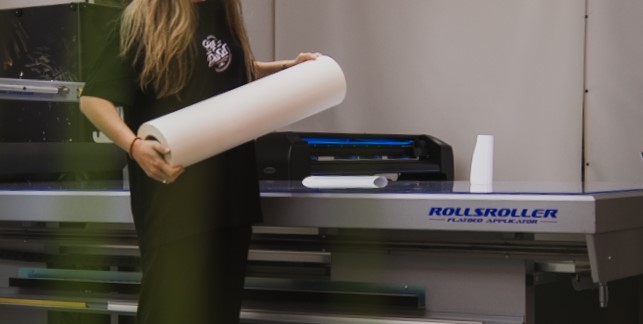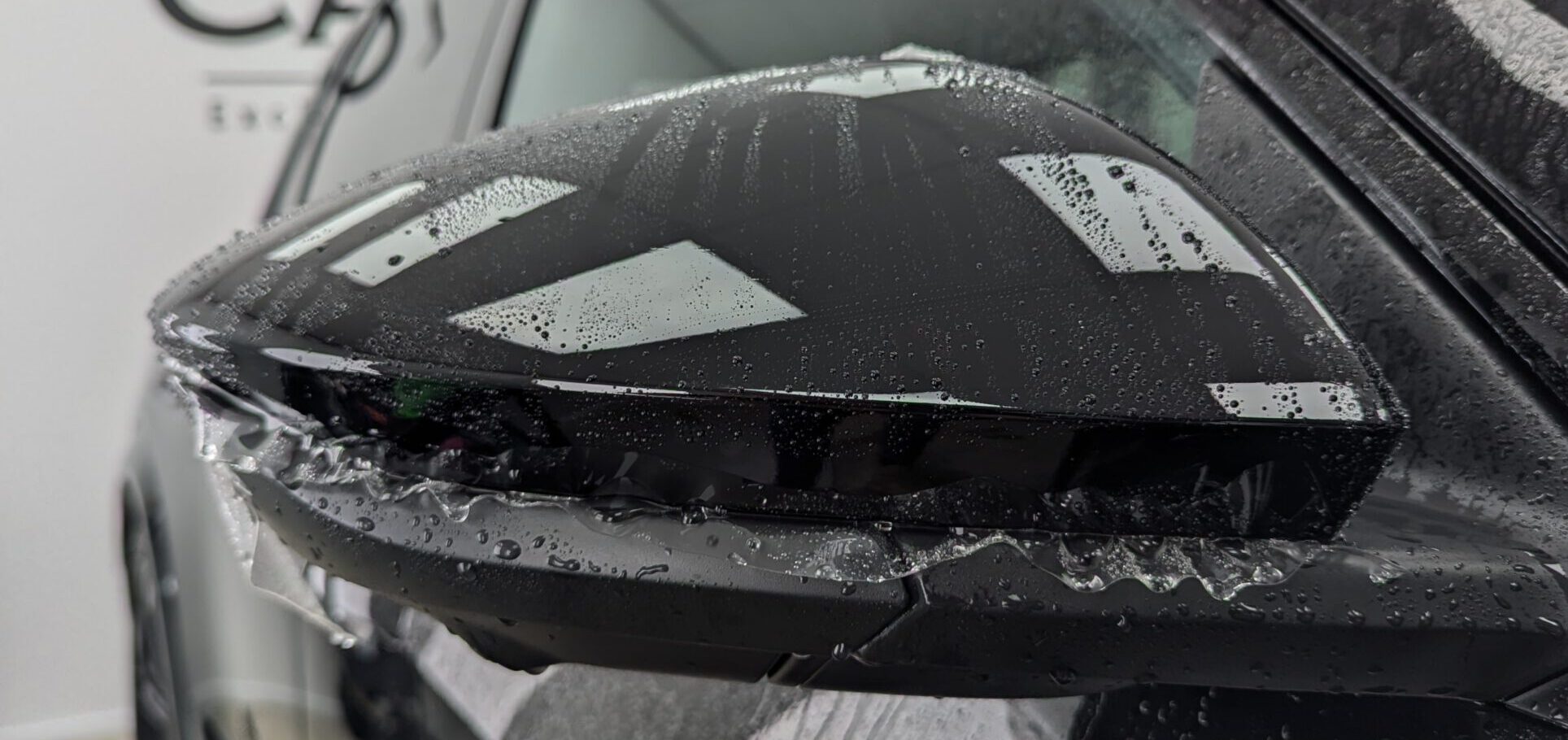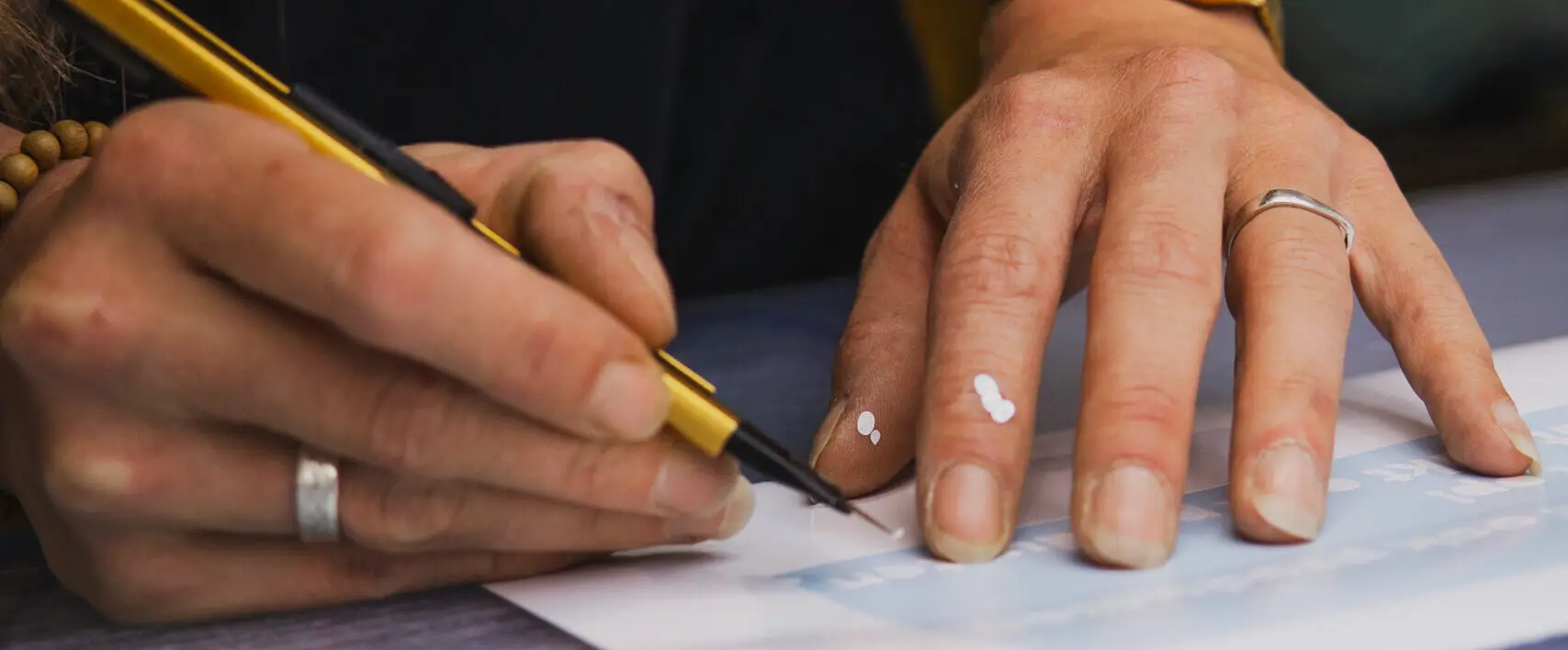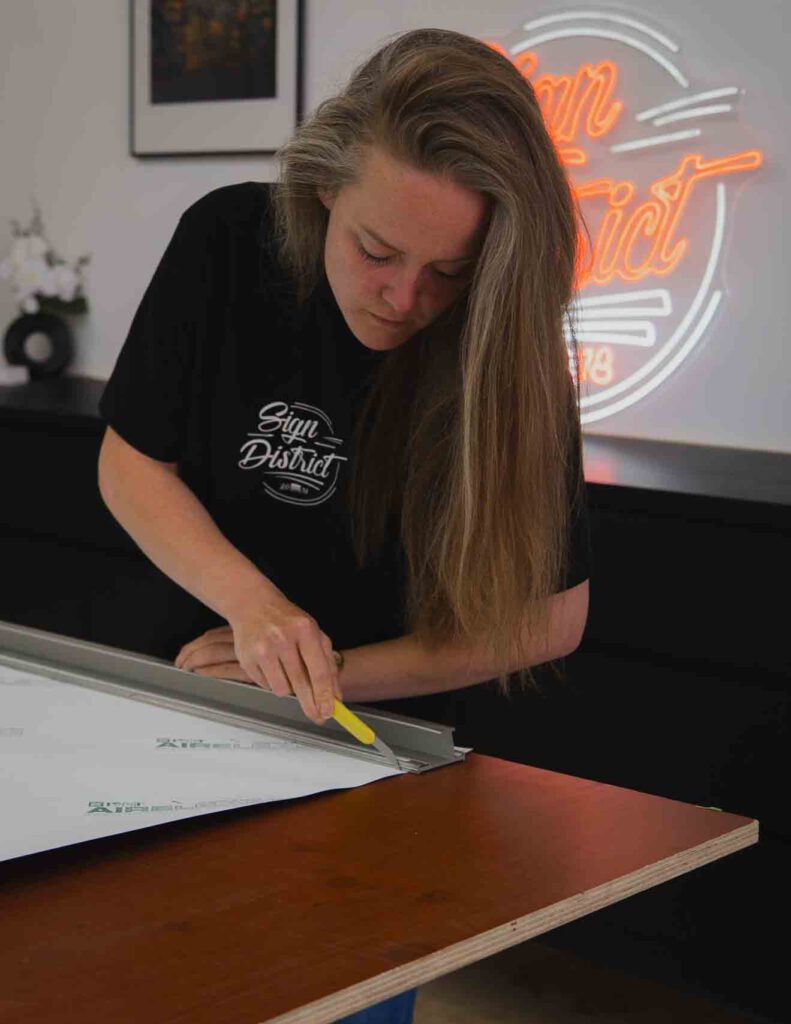Introduction
Anyone exploring car wraps or film applications for vehicles will quickly encounter various material types of wrapfilm. The most commonly used types of wrapfilm are made from PVC, PET, or PU/TPU. Each material has unique properties, advantages, and applications. This article explains these three types of wrap films so you can make an informed choice for your vehicle or project. For personalized advice on the best film for your situation, you can always contact Sign District.
Article Summary
- The most commonly used types of wrapfilm are made from PVC, PET, or PU/TPU.
- PVC is flexible, affordable, and widely available, but less durable.
- PET is more scratch-resistant, environmentally friendly, and offers a premium appearance, but is less available.
- PU/TPU films are extremely durable, elastic, and self-healing.
- The choice depends on appearance, protection, budget, and service life.
PVC Film (Polyvinyl Chloride)
PVC is the most widely used and well-known film in the world of car wrapping. This film is popular due to its flexibility, wide range of colors and finishes, and relatively low price. PVC films are easy to shape around curves and contours of vehicles, making them suitable for almost any model. They are ideal for those who want to change color or design regularly or are looking for an affordable solution.
Advantages:
- Wide range of colors, prints, and textures
- Flexible and easy to apply
- Affordable and widely available
Disadvantages:
- Less durable than other materials; over time it can fade, crack, or leave adhesive residue. However, this typically takes 5 to 7 years.
- More sensitive than PU/TPU to UV radiation and extreme weather conditions
- Environmental impact due to chlorine content, although this is slowly beginning to change
PET Film (Polyethylene Terephthalate)
PET film is a strong, stable plastic increasingly used as an alternative to PVC. PET films are harder, more resistant to scratches and chemicals, and naturally offer higher UV protection. They are often glossier and provide a premium appearance. PET is also more recyclable and contains no chlorine, making it more environmentally friendly than PVC.
Advantages:
- High scratch and UV resistance
- Glossy, clear finish
- More environmentally friendly and recyclable
Disadvantages:
- Less flexible than PVC, making it harder to apply to complex shapes
- Limited range of colors and textures
- More expensive than PVC film and almost unavailable
PU/TPU Film (Polyurethane/Thermoplastic Polyurethane)
PU or TPU films are mainly used as paint protection film (PPF) but are also available as colored wraps. These films are extremely durable, elastic, and self-healing: small scratches disappear automatically when warmed. TPU offers the best protection against stone chips, scratches, and weather influences and has a long lifespan of up to ten years. The film is usually transparent or lightly tinted, but increasingly colored TPU wraps are entering the market.
Advantages:
- Very high durability and protection
- Self-healing from minor damage
- Elastic and resistant to harsh conditions
Disadvantages:
- Limited range of colors and finishes
- More difficult to work with than PVC
- The highest price segment of all wrap films
Conclusion
PVC, PET, and PU/TPU wrap films each have their own characteristics and applications. PVC is flexible and cost-effective, PET offers greater protection and a glossy appearance, and PU/TPU is known for maximum durability and self-healing capabilities. The right choice depends on your requirements for appearance, protection, budget, and service life.
Would you like to know which film best suits your vehicle or project? Feel free to contact Sign District for expert advice and a tailored solution.
Sources and Citations
Bronnen & Citaten
Highcool – PVC vs PET vs TPU Color Wrap Film: Which is Best?
WEGO Films – What Is PVC? How to Choose PVC Vinyl Wrapping Film?
ClearPro – Exploring Car Wrap Materials: What Are Car Wraps Made Of?
KL Tint Studio – PET vs. PVC: The Ultimate Guide to Choosing Your Car Wrap
Carwraponline – CHOOSE PET PVC OR TPU CAR WRAPS?
CAXVINYL – What Is The Difference Among PVC,PET,TPU Car Wrap
FESPA – Car Wrap Materials and Trends
Avery Dennison – Car Wrap Films
Hexis Graphics – Car Wrap Films
Citaties
https://www.egretmfg.com/analysis-of-the-usage-and-advantages-of-pvc-wrapping-tape.html
https://highcool.com/pvc-vs-pet-vs-tpu-color-wrap-film/
https://wegofilms.com/what-is-pvc-how-to-choose-pvc-vinyl-wrapping-film/
https://www.clearpro.com/what-are-car-wraps-made-of/
https://kltintstudio.com/pet-vs-pvc-the-ultimate-guide-to-choosing-your-car-wrap/
https://www.carwraponline.com/CHOOSE-PET-PVC-OR-TPU-CAR-WRAPS
https://www.caxvinyl.com/what-is-the-difference-among-pvcpettpu-car-wrap/
https://en.wikipedia.org/wiki/Plastic_wrap
https://www.wzpolysan.com/self-healing-tpu-polyurethane-ppf-car-wrap-film.html
https://www.alukovinyl.com/What-is-PET-Vinyl-Wrap
https://metrorestyling.com/blogs/news/best-car-wraps
https://www.alukovinyl.com/The-Difference-Between-TPU-Car-Wrap-and-Regular-Car-Wrap
https://kenteerwrap.com/comparing-tpu-car-wraps-to-vinyl-wraps-which-is-right-for-you/
https://www.vinylfrog.com/blogs/car-wrap-tips/car-wrap-materials
https://stretchwrappingfilm.com/pe-vs-pvc-stretch-film/
https://teckwrapcraft.com/blogs/tips/pu-vinyl-vs-pvc-vinyl
https://www.alukovinyl.com/Is-PET-Vinyl-Wrap-Good
https://www.tintingchicago.com/car-wrap-brands/
https://www.kpalautomotive.com/blog/Comparison-of-Material-Types-for-Car-Color-Wrap-PVC-vs-TPU/
https://www.alukovinyl.com/Introduction-to-Car-Wrap-Materials-PVC-TPU-and-PPF




